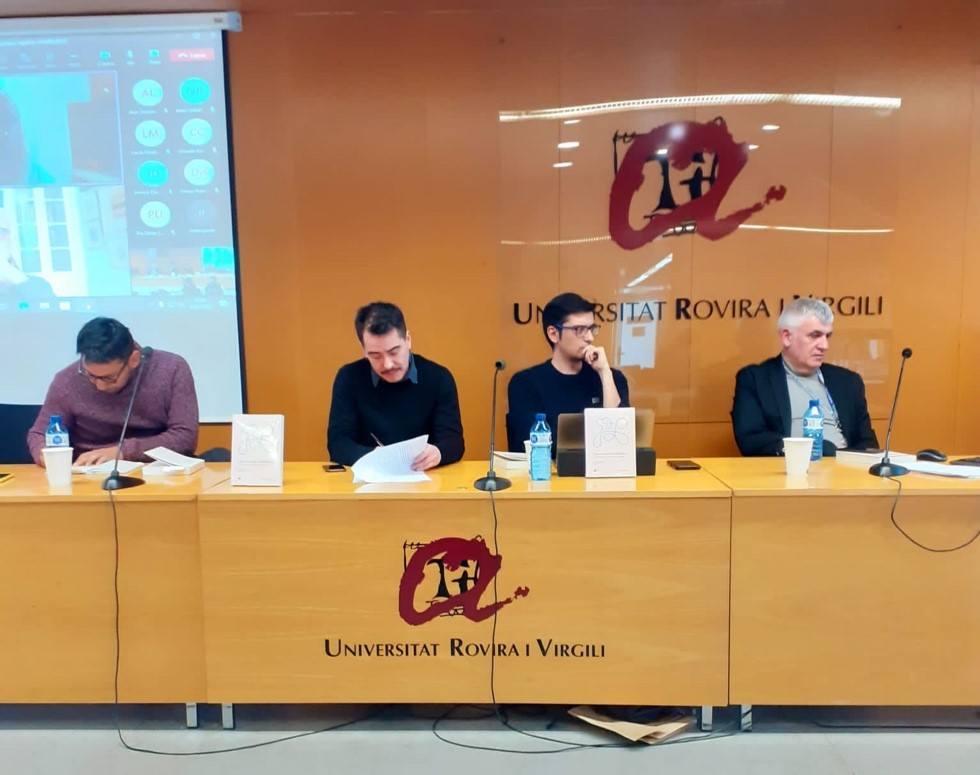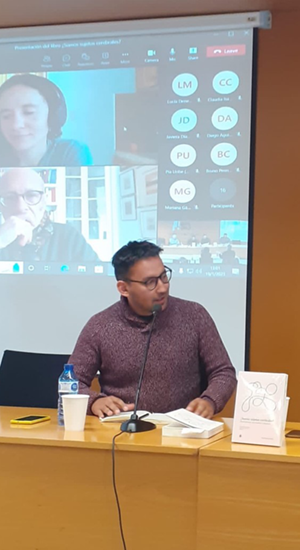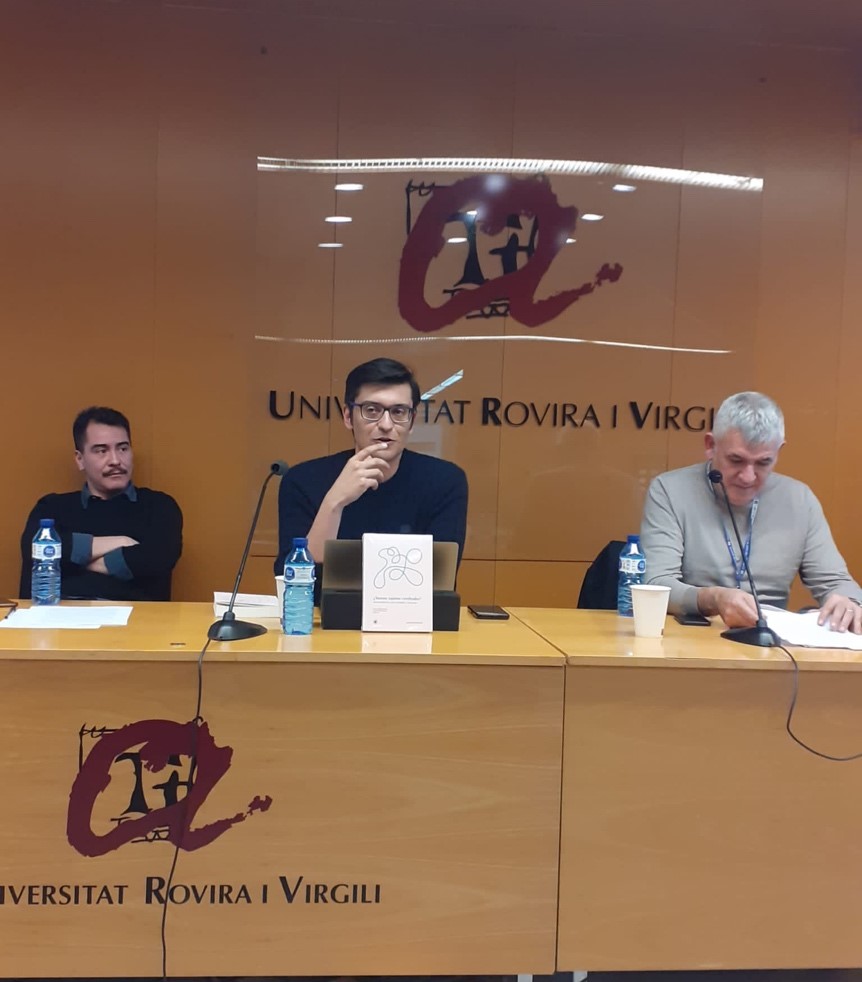“Are we cerebral subjects?” - Book launch event at the Medical Anthropology Research Center (MARC) in Spain.
The Medical Anthropology Research Center (MARC) of the Rovira i Virgili University (URV) in Tarragona, Spain, hosted the presentation of the book ¿Somos sujetos cerebrales? Neurociencias, salud mental y sociedad (Ediciones Universidad Diego Portales, 2022) [Are we cerebral subjects? Neurosciences, mental health and society] edited by Álvaro Jiménez Molina and Gabriel Abarca-Brown, postdoctoral fellow of our project. A group of 35 scholars, postdocs, and Ph.D. students from different countries participated in this hybrid event last January 19th.
“Are we brain subjects?” explores some historical and socio-anthropological aspects of how neurosciences have influenced the representations of health and illness, mental health research and practices, and the emergence of biosocial groups and several forms of identity politics. The book brings together contributions by outstanding researchers such as Joelle M. Abi-Rached, Dominique P. Béhague, Rodrigo de la Fabián, Alain Ehrenberg, Junko Kitanaka, Claudio Maino, Baptiste Moutaud, Francisco Ortega, Victoria Pitts-Taylor, Nikolas Rose, and Fernando Vidal.
The round table comprised Francisco Ortega (ICREA researcher), Mauricio Carreño, and Julieta Maure (Ph.D. students at the URV). They presented the three book sections and debated on historical, social, political, and ethical aspects of the development and impact of neuroscience in different spheres. They examined the role of these debates within the psychiatry and mental health fields, considering global discussions and specific local contexts.

After the round table, Álvaro Jiménez Molina and Gabriel Abarca-Brown described the book's publishing process. They explained how the book resulted from their respective research interests, the need for teaching in social sciences and mental health in Latin America, and the interest in bringing together contributions from diverse traditions in social sciences and humanities. They stressed the need to promote local and decolonial debates on introducing neurosciences into evidence-based policies and the global mental health agenda.

In the final part of the event, Fernando Vidal (ICREA researcher) highlighted the "balanced" nature of the book and its various contributions. In addition, he promoted a debate with those attending the event about the challenges that this topic brings with it. Among them, Vidal and the attendees highlighted the challenges of mutual collaboration between social sciences, humanities, and neurosciences; the value of local contexts in the transformation of "psy" and "neuro" knowledge and practices; and how the neurosciences and recent contributions in digital psychiatry became "promises" anchored in the ideals of the time.

